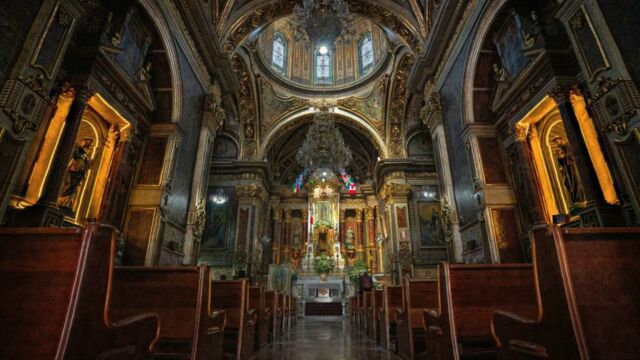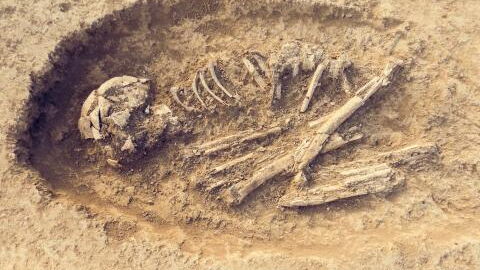Sometimes, legends and fairy tales find their way into real life. Far from being mythologized tales, some of these orally-transmitted stories turn out to be completely true. This is confirmed by this incredible discovery, which brings together two cultures and two religious worlds.
Discover our latest podcast
A world under ground
A team of researchers on an escapade in southern Mexico made a gloomy discovery, to say the least, in a Catholic church. Or rather, under the church. Using a variety of geological analysis tools, they found what was hidden beneath the building: a 'gateway to the underworld'.
Ever since the church was built in the 15th century during the Spanish conquests, various legends have suggested that the chapel's main altar was built over the ancient sealed entrance to a vast underground complex. This was linked to an ancient Zapotec temple, a pre-Columbian people living in the south of the Central American country.
The ancient Zapoteca temple
This vast labyrinth, which the researchers were able to map using their tomography tools, comprises several chambers and numerous tunnels built over a millennium ago by the 'cloud people', as the Zapothecans called themselves.
According to their observations, this underworld known as Lyobaa, from the time when a huge temple stood where the church now sits, means 'the place of rest'. It served as the main religious center until the Aztec conquests and Spanish colonization. The latter reused stones from the ancient temple to build their church.
Zapotec 'entrance to underworld' discovered under Catholic church in Mexico https://t.co/drOJnWvjLb
— Live Science (@LiveScience) July 12, 2023
A true legend!
Marco Vigato, founder of the ARX research project, told Live Science:
The newly discovered chambers and tunnels are directly linked to ancient Zapotec beliefs and concepts of the underworld.
“Local lore has long held that the entrance lies under the main altar of a Catholic church built over the ruins.”https://t.co/KhallvyjRw
— ᴋʟᴀᵾs (@tinyklaus) July 8, 2023
This discovery confirms 'the veracity of colonial accounts of elaborate rituals and ceremonies carried out at Mitla in underground chambers associated with the cult of the dead and ancestors'.
A remarkable archaeological advance for specialists in pre-Columbian America, but one that will require further excavation. Indeed, once the soil has been examined, it will be necessary to dig into the labyrinth. Indeed, archeologist José Luis Punzo Díaz explains:
Because, although the geophysical data are interesting, it is always essential to verify them in the field.
Read more:
⋙ Ancient Mayan artefacts found covered in psychedelics by archaeologists
⋙ These mysterious ‘dragon houses’ are yet to be explained by archaeologists
⋙ Conspiracy theory: Has the mystery of the Bermuda Triangle been solved?
This article has been translated from Gentside FR.















